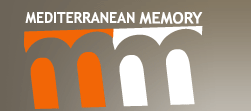France as seen by the Moroccan media
Introduction
Working on how France is represented in the Moroccan media is a fascinating but delicate task. Delicate because the aim is to show the image the Moroccan media and people have of the French nation, both negative or positive, trying to avoid the dangers of subjectivity and objectivity. Interesting because it enables us to study the lexico-grammatical, socio-linguistic and communicative properties of each qualifier or reference to the word "France" or "French", to see how what is said is produced, perceived and received. This essay tackles the construction of meaning and representation as assessment and as a mutation in and through time and space. This gives the study an analytical character in which several disciplines of the human and social sciences can connect.
Leaving aside the technical means of showing something, the way it is seen is a concept built into the consciousness and out of the contact between individuals. Or it comes from a meeting of languages, societies and cultures. So the way something is seen, as an image generated by debate, often a media debate, contributes to the construction and dynamics of meaning and may create meanings other than those recognized in language and its everyday use. The interest of this work is presented under the following assumptions:
– The media is a multi-modal area in which several factors come into contact, each capable of putting meaning and the construction of meaning in competition against each other.
– Depending on its type and its methods, the media can produce meaning and the reception of messages according to the different transactions between individuals, groups and societies.
– The media or communication technology controls the semantic content and social relations according to discursive and socio-cultural practices. This highlights the concepts of relationship, contact and conflict, and leads to the production or reproduction of meaning, genres and spaces.
Indeed, the media establish social links and cultural and inter-cultural relations, and this makes it a place of contact and reconciliation between cultures, languages, societies, identities, religions, politics, gender, etc.. However, if the word inter-culturality is used to describe and explain the different behaviour when people of different cultures meet, especially when they speak together, for this study we are interested in this phenomenon when it is represented by the media.
The study is based on articles in the general and independent press from:
– daily newspapers such as Aujourd’hui le Maroc (from 2004 – 2008), Le Matin (2005 – 2012) Al Bayan (2007 – 2008) and Libération (2008 – 2009)
– weekly magazines such as Telquel (2007 – 2012)
For newspapers which are online and have an archive, most articles were taken off the Internet. As far as the audiovisual side is concerned, the research was done on news items and videos from Morocco's two public channels SNRT and 2M contained in INA-Mediterranean's database. The aim was to build a more or less representative corpus of the subject being studied and to offer an explanation for the representativeness of the words inventoried used to describe or qualify the entity "France" or "French" in the Moroccan media. Representation, like categorization, can come from a name, hence the need to treat the latter since the linguistic and communicative criteria, notably the referential, bring it closer more or less to the proper name (Kleiber: 1981, Jonasson: 1994).This way of representing can be both linguistic and socio-cultural, cross-cultural, political and strategic.

Introduction
I- Words and Spaces: referentia...
II- France today or the paradox...
Conclusion
Bibliography
Webography


Abstract
Working on how France is represented in the Moroccan media is a fascinating but delicate task. Delicate because the aim is to show the image the Moroccan media and people have of the French nation, both negative or positive, trying to avoid the dangers of subjectivity and objectivity. Interesting because it enables us to study the lexico-grammatical, socio-linguistic and communicative properties of each qualifier or reference to the word "France" or "French", to see how what is said is produced, perceived and received. This essay tackles the construction of meaning and representation as assessment and as a mutation in and through time and space. This gives the study an analytical character in which several disciplines of the human and social sciences can connect. ...
Author
Lachkar Abdenbi
Professor in communication sciences, University Ibn Zohr of Agadir.





